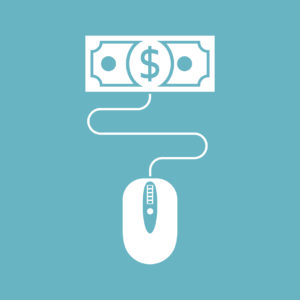** New Requirements under California’s Auto Renewal Law Requires Online Cancellation for Online Subscribers **
By: Brent E. Johnson

As we blogged about in the past, in 2010, California’s Automatic Purchase Renewal Statute (“CAPRS”) became effective for businesses offering automatic renewals or continuous service offers to California consumers. See Cal. Bus. & Prof. Code § 17602. The stated intent of CAPRS is to “end the practice of ongoing charging of consumer credit or debit cards or third party payment accounts without the consumers’ explicit consent for ongoing shipments of a product or ongoing deliveries of service.” Cal. Bus. & Prof. Code § 17600.
Almost half of US states now have similar laws on the books – some applying to all consumer contracts – others applying only to specific businesses such as gyms or security services. The common denominator amongst these state laws is a requirement to provide disclosure of auto renewal policies in a manner that is clear and conspicuous. See e.g., Connecticut (Conn. Gen. Stat. § 42-126b), Florida (Fla. Stat. § 501.165), Georgia (O.C.G.A. § 13-12-3), Illinois (815 ILCS 601/10), Louisiana (La. Rev. Stat. § 9:2716), Maryland (Md. Code Com. Law § 14-12B-06), New Hampshire (N.H. Rev. Stat. § 358-I:5), New York (N.Y. Gen. Oblig. Law § 5-903), North Carolina (N.C. Gen. Stat. § 75-41), Oregon (Or. Rev. Stat. §§ 646A.293, .295), Rhode Island (R.I. Gen. Laws § 6-13-14), South Carolina (S.C. Code § 44-79-60), South Dakota (S.D. Codified Laws § 49-31-116), Tennessee (Tenn. Code §§ 62-32-325, 47-18-505) and Utah (Utah Code § 15-10-201).
California’s law is among the strictest, requiring explicit consent before charging a consumer’s account for ongoing orders. As a remedy for violation, goods provided to a subscriber on an automatic basis without the required consent are deemed “unconditional gift[s]” (§ 17603) – i.e., “freebies.”
Although not particularly old, California’s law recently received an update– with new provisions going live July 1, 2018. The primary new provision is a requirement that accounts opened online must be permitted to be cancelled online. Cal. Bus. & Prof. Code § 17602 (c) (“A consumer who accepts an automatic renewal or continuous service offer online shall be allowed to terminate the automatic renewal or continuous service exclusively online.”) No more cumbersome phone calls to customer service agents to cancel accounts. The makeover of California’s law also extends its application to free or discounted trial periods. A cancellation notification must be given prior to the end of this period giving the consumer information on how to cancel prior to being charged the new or non-discounted price. § 17602 (a)(3).
Failure to comply with auto renewals laws has exposed a wide variety of companies to class action complaints (mainly in California under CAPRS). Vemma Nutrition; Spotify; Dropbox; Tinder; LifeLock; Birchbox; Google and Apple have all been sued. Courts are clear that CAPRS does not have an intrinsic private right of action – but that a violation would be an “unlawful” business practice under California’s Unfair Competition Law (UCL) (Cal. Bus. & Prof. Code § 17200). Johnson v. Pluralsight, LLC, No. 17-15374, 2018 WL 1531067 (9th Cir. Mar. 29, 2018). And as for a remedy under the UCL, failure to honor the “free gift” provision of § 17603 was deemed to be a sufficient allegation to warrant restitution. Id. at * 2.
Companies should take steps to comply with CAPRS and similar laws by:
- Making sure the auto renewal terms are stated clearly and conspicuously – and making sure the terms comprehensively describe the offering, price, frequency of charges and length of minimum terms.
- Having a process to obtain the consumer’s affirmative consent before he or she is charged and providing a mechanism to cancel online, if the subscription is created online.
- Confirming the terms with a notice (such as by email) that includes all relevant offer terms and the cancellation policy prior to the first payment or increase in promotional prices.
